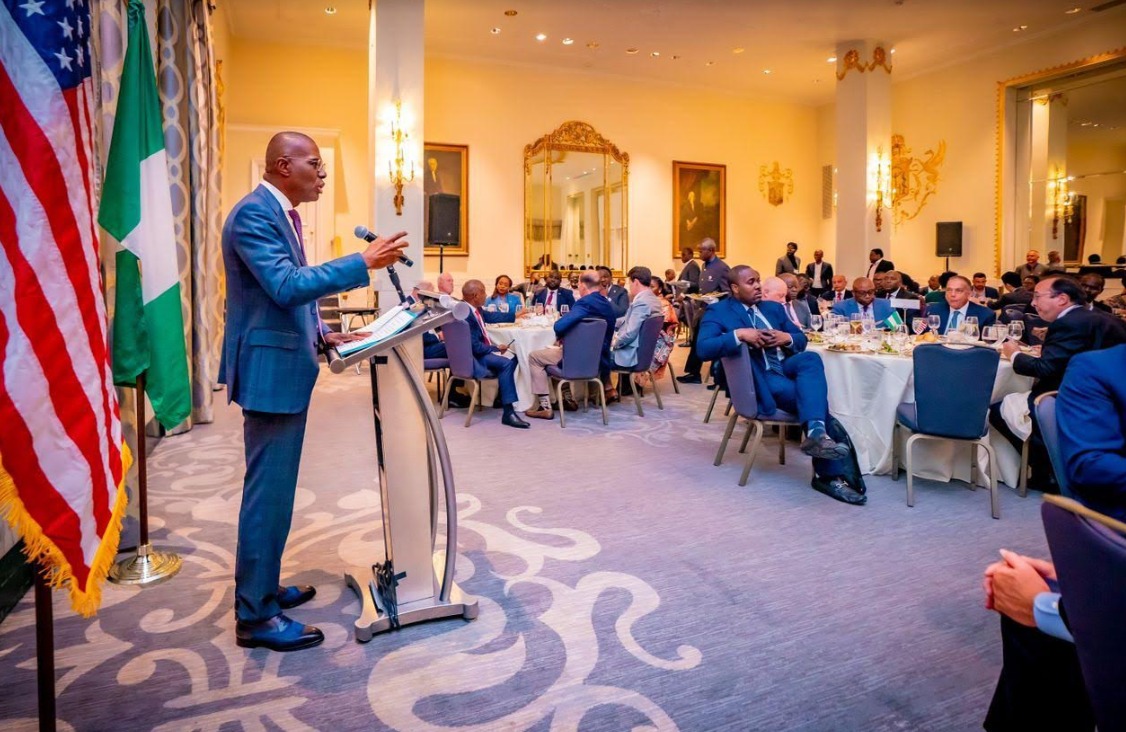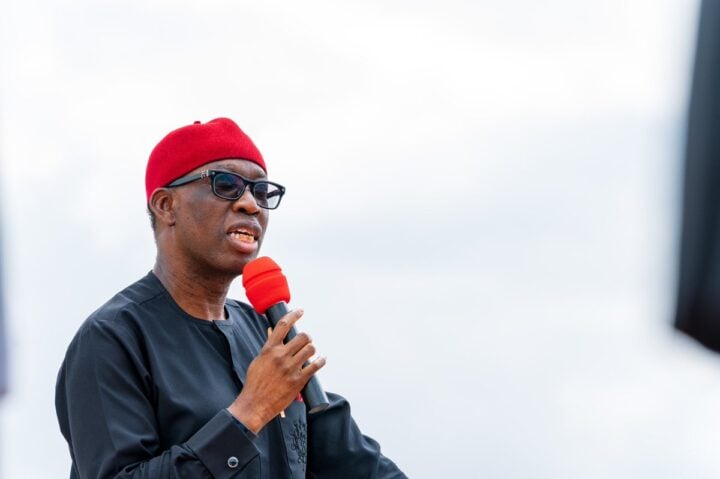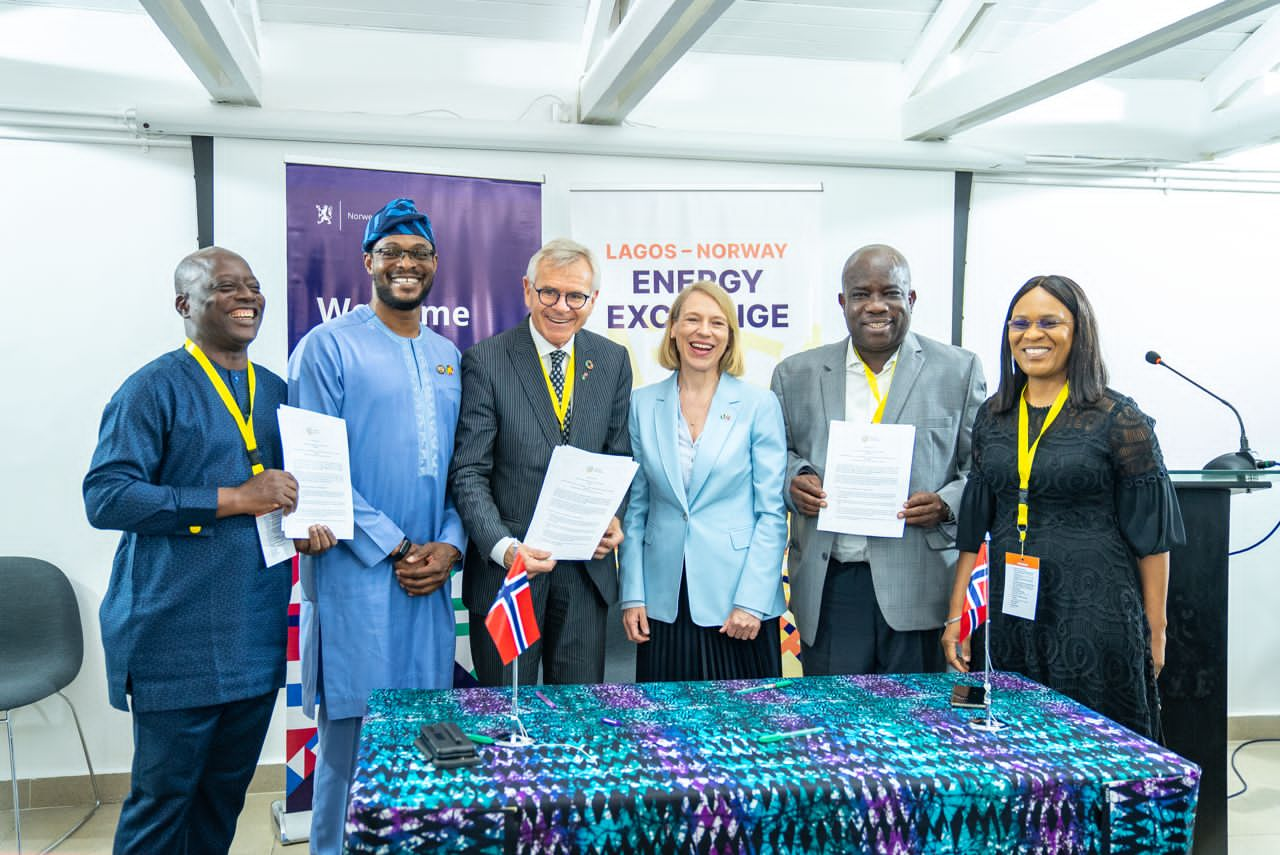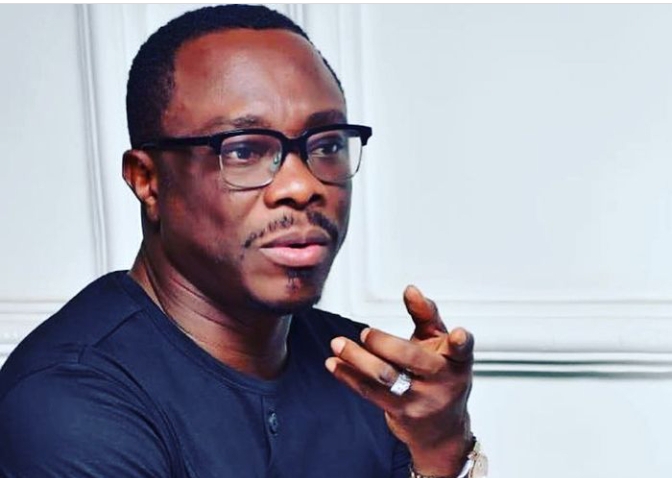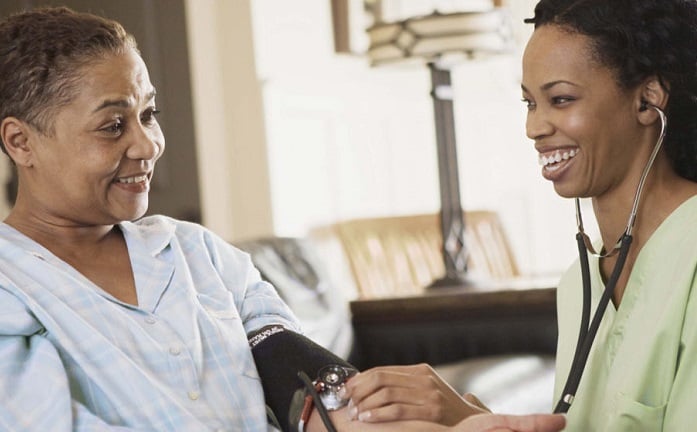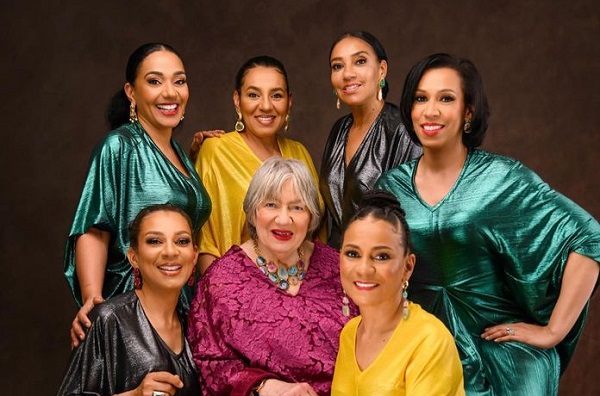Babajide Sanwo-Olu, governor of Lagos, has assured investors that the state is the right place for investments and “the crown subnational jewel of the African economy”.
Sanwo-Olu spoke at the United States-Nigeria council for food security, trade and investment (UNSC) event, held on the sidelines of the recent World Bank-International Monetary Fund (IMF) spring meetings in Washington DC.
He said the state was the right place for investments in financial technology, education technology, health technology, business process outsourcing (BPO), talent training and placement, or physical infrastructure like data centres, among others.
“It is always my very great pleasure to engage with existing and potential investors and business people in Nigeria, and most especially, Lagos state, the crown subnational jewel of the African economy,” Gboyega Akosile, chief press secretary of Lagos, quoted Sanwo-Olu as saying, in a statement on Monday.
Advertisement
“I am sure many of you will be familiar with the numbers, the fact that Lagos is the fifth largest economy on the continent, the most populous city, and the fastest-growing urban centre, with a very vibrant and entrepreneurial population, made up of mostly young people.
“We have the market, we have the talent, we have the enabling environment, we have the physical infrastructure, all in place. And we have the success stories, great testimonials of what is possible when people come together to develop and implement great ideas and solutions, backed by the power of private capital and the support of understanding and enthusiastic governments.”
Sanwo-Olu, who highlighted areas of accomplishments in the state, said one of the feats he is proud of has been the completion of the first phase of the Lagos light blue rail line — “the first modern intra-city rail system in Lagos”.
Advertisement
He said the project is currently undergoing a test-run, “allowing Lagosians to have a long-overdue feel of what it is to belong to a city with the 21st-century rail system”.
The governor said work on the first phase of the red line is also being completed.
“It will interest you to know that the deep-sea port is the first deep-sea port to be built in Nigeria, and is now the most modern one in West Africa. A real game-changer for shipping and logistics in Nigeria and all of the west coast of Africa,” he said.
“Lagos state owns a 20 percent stake in that port, while private investors own 75 percent. The port will create an estimated 170,000 direct and indirect jobs and generate government revenue of over $200 billion over its 45-year concession period.
Advertisement
“It is, in our view, among the biggest and most transformational infrastructure investments in Lagos state in several decades, and we worked very hard with the private sector and the federal government to deliver it.
“Expect more of these kinds of collaboration in the next four years, especially as we look to deliver on a new bridge across the Lagos Lagoon, the 4th Mainland Bridge, and a new International Airport in Lagos.”
INVESTMENTS IN AGRICULTURE AND INFRASTRUCTURE
Sanwo-olu further said the government was working assiduously on providing better infrastructure such as the 10-lane expressway linking Nigeria to Benin Republic; and a network of access roads to the Lekki deep sea port.
Advertisement
In addition, he said his administration was focusing on processing and storage infrastructure because of the state’s population, which makes it Nigeria’s biggest food consumption hub.
“We are also very blessed with water — a lagoon and the Atlantic Ocean, which means fisheries are a huge opportunity. It is with these opportunities in mind that we have recently completed the largest rice mill in sub-Saharan Africa, which will be managed by private players, while also building what will be the largest food security systems and central logistics park in sub-Saharan Africa,” he added.
Advertisement
The governor explained that the park, with storage facilities, can guarantee uninterrupted food supplies to “more than 10 million persons, for at least 90 days”, adding that the project is one of the outcomes of the five-year Lagos state agricultural and food systems road map (2021–2025).
DIGITAL TRANSFORMATION KEY PRIORITY
Advertisement
Commenting on digital technology and innovation, Sanwo-Olu said Nigeria’s Information and communication technologies (ICT) sector — a component of the digital economy — was the only sector of the economy that grew by double digits during the COVID-19 pandemic.
He said Lagos is the fintech capital of Africa, where companies like Flutterwave, Paystack and Interswitch were born.
Advertisement
“As a state government, we are partnering with the federal government, and the private sector, to redevelop the national theatre, a Lagos landmark, into a world-class creative and technology park, with hubs for information technology, music, film, and fashion. That multi-million-dollar redevelopment is very well advanced now and should be completed this year,” the politician said.
“I must also not fail to mention the fact that Nigeria now has a startup act, the Nigeria Startup Act, which was signed into law by President Buhari some months ago, and which further solidifies our status as the country of choice for technology investment in Africa.”
Sanwo-Olu said the state was also working on the smart city project, adding that digital transformation was also a priority.
“The smart city project also includes hundreds of video surveillance cameras, to improve security in the metropolis, as well as help us better coordinate our emergency response systems,” he said.
Add a comment
